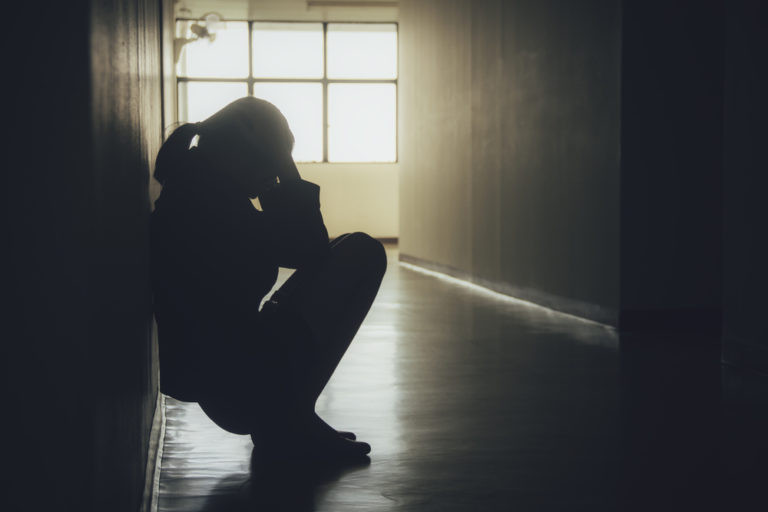
X: I do not understand why things are happening the way they are happening. I feel trapped, it looks like there is a dark cloud. I am always asking myself why me?
Y: Would you want to talk about it?
X: Of course, you know my life has been one roller coaster of late. I mean, from losing my parents and siblings in an accident on the spot four months ago, to losing my job which was my everything and now its my husband wanting to file for divorce. This was after Buster, my dog died. Well,I just don't know…It’s been two weeks I have been in bed. l cannot face the world. l just don’t know!
A few things can compare to the pain of losing a loved one or something one dearly loves. While there is no way to block or avoid these intense feelings of grief, there are healthier ways one can use to cope and come to terms with their loss.
We might think the grieving process as a roller coaster, full of ups and downs, highs and lows and like many roller coasters, the ride tends to be rougher in the beginning where the lows may be deeper and longer.
The above conversation is a scenario of someone who has had multiple losses and feels sucked in because they have had too many losses consecutively and they do not know how best to deal with the trauma and move forward.
What is bereavement?
Bereavement is an experience of losing someone important to us. It is characterised by what we call grief, which is the process and the range of the emotions we go through as we gradually adjust to the loss or multiple losses as is in the case with X.
- New perspectives: What Zimbabwe needs to achieve work for all
- New perspectives: Why Zanu PF is not so successful after 2001
- New perspectives: Achieving universal health coverage in Zim
- New perspectives: Why it is important to have a job contract before offering services
Keep Reading
Losing a loved one can be emotionally devastating and overwhelming, be it a friend, a family member, your partner or even a pet. It is extremely natural to go through a range of physical as well as emotional processes to come to terms with the loss.
It is crucial to note that bereavement affects us all in different ways. There is no right or wrong way to feel.
You may experience grief due to reasons such as:
- Losing a job
- A break-up
- Death
- Financial problem
- A life changing illness or injury
Stages of bereavement
Grieving is such a big job. It is best managed a little at a time. Although somewhat predictable, there are typically some stages of grieving
- Denial — Numbness and shock is present here. In the initial stages, one may not believe that their loved one is surely gone. This is the, “This cannot be happening to me” phase.In some cases, the bereaved can even go for years without fully accepting that a loved one is gone.
- Anger,guilt and blame — After the shock is gone, one may feel angry with anyone they think could have prevented the loss from happening. At this stage you ask, “Why is this really happening? Who is to blame?”Sometimes, these feelings can be directed towards God,family members, medical practitioners or against oneself feeling guilty that you could have done something. Sometimes one might even feel angry with the person who has died for leaving them. These feelings can be so intense but it's important to bear in mind that it is a process.
- Bargaining — here the bereaved person desperately wants their loved one to be back, regardless that at this point it is impossible. Here there can be bargains of hoping the circumstances can change…” if they were here l would tell them of how much l love them…” Basically with this stage, it is the “make this not happen,and in return l will…”
- Depression — “I am too sad to do anything”. In this stage, there is a lot of sadness and even withdrawal. There is more time spent thinking about the loved one who is no more. One might isolate themselves and the extreme sadness can be triggered by unexpected things happening in life.
- Acceptance — In this phase,the person who is grieving begins to adjust to a new life without their loved one. You might still miss them but then would have come to terms that your future no longer includes them. You might feel something is missing and there could be reminders rekindling the feelings of your loss months or even years later. So here it is basically, “I am at peace with what has happened”,“It is what it is''.
We should always remember that grief may not always fall into stages.Your emotions in dealing with loss may be unpredictable, and feelings of anger,sadness,guilt and depression can appear at any time.
Some people, due to various reasons, might not even get depressed or be numb; they can just start by accepting the loss and we should never judge them. The journey of our healing after loss is not one size fits all.
Symptoms of bereavement
Nothing about grief feels normal. With time the intensity will fade and most people will start living normally and healthier which we can term uncomplicated grief.
In other cases, the grief symptoms can linger longer and the bereaved find it really difficult to move on. They might find themselves stuck at a particular stage, maybe here grief rather than healing has become persistent. We can term it complicated grief and it can present with:
- Bitterness about loss
- A sense of meaningless and lack of purpose
- Difficulty carrying normal routines
- Failure to focus
- Just thinking about the loved one
- Guilt- believing you caused the death or could have prevented it
- Numbness
- Longing for the deceased intensely
- Extreme focus on reminders of the loved one or excessive avoidance of reminders
- Problems accepting the loss
- Lack of trust in others
- Inability to enjoy life or think back on positive experiences with loved ones
- Withdrawal from social activities
- Wishing one had died along with the loved one
To mention but a few, again it varies from person to person.It is not a one-size fits all.
Myths and facts about grief
Myth : Grief has a timeline
Fact : There is no set timeline to get over grief and be done with it. It is a process and is very personal influenced by so many factors
Myth : There are orderly stages of grief
Fact: There is no set sequence in stages of experiencing grief.
Myth : There are right and wrong ways to grieve
Fact: There is absolutely no right or wrong way to grieve. Despite social expectations on how one should grieve “correctly” the naked truth is that everyone has their own unique ways of grieving
Myth: Ignoring the pain of grieving will make it go away
Fact : Ignoring the pain of grief and being busy is only a temporary solution. Sooner or later the grief will likely catch up with you. Donot rush it, face the grief and actively deal with it.
Myth : If you are not crying then you are not grieving
Fact: Tears are just a normal response to sadness but it is not the only way to express emotions. Nomatter how little someone is crying it does not quantify how much someone is grieving.
Myth : Crying is a weakness
Fact : Crying is a healthy response to grief and sadness for anyone. Try not to repress the urge to cry as it helps with physically processing emotions. Unfortunately, in our culture it is a misconception that crying is a weakness.
Myth : Women grieve more than men
Fact : Everyone grieves. The intensity of grief is impacted by the one’s relationship with the deceased
Myth: You should mask your grief when in public
Fact: It is unnatural to expect feelings to stick to a schedule
Coping and support
Be patient with yourself remembering there is no set time limit for grief. Some days are better than others and some are even harder. After feeling a little bit better for several weeks, it is normal that on one day you might just wake up to a sudden setback. You must allow yourself to experience all the emotions and feelings that come with loss.
Self-care- Do not abandon yourself, take care of yourself even physically. Eat healthy, exercise., get enough rest, read on how to manage stress.
Ask for help- this is the right time to lean on the people who care about you. Tell people how best you need help as well.
Draw comfort from your faith— If you follow a religious tradition, embrace the comfort the mourning rituals you believe in can provide. Engage in spiritual activities that are meaningful to you such as praying,meditating or even attending church if they offer solace to you.
Face your feelings- you can try suppressing them but you cannot avoid them forever. So that you heal, acknowledge the pain. Unresolved grief can later lead to complications such as anxiety,depression etc
Express your feelings in a tangible or creative way- even if you are not able to talk about it with others, you can write your feelings down, write a letter to the deceased or you can even volunteer to a cause related to your loss.
Try by all means to maintain your hobbies and interests- there is joy and comfort in going back to your routine and activities you enjoy.
Donot let anyone tell you how to feel and donot tell yourself either how to feel.
Plan ahead of your grief “triggers”- anniversaries and holidays and other important milestones can hit you with reawakening painful memories thus be prepared for emotional breakdowns and know it is completely normal. This reminds me of how Mothers’Day can be so emotional for me because I never got to spend time with my mum and memories, we could have created had she lived a little longer. You can plan ahead by making sure you are not alone etc.
Get professional help if you needed.
Share with people who have experienced the same, this will help to let you know you are not alone.
Avoid alcohol to escape or self medicating drugs because while these can help in temporarily relieve the pain, they can create more harm than good.
We will definitely experience grief in our lives. We will say goodbye. Loss will hit us unexpectedly.Friends,families, pets,role models will leave and we should always remember it is okay to express grief and process it uniquely. We should always remember it does not always follow a linear track. We should be patient with ourselves in our healing journeys.
- Chimwanza is a systemic counsellor and family therapist. These weekly New Horizon articles, published in the Zimbabwe Independent, are coordinated by Lovemore Kadenge, an independent consultant, managing consultant of Zawale Consultants (Pvt) Ltd, past president of the Zimbabwe Economics Society and past president of the Chartered Governance & Accountancy Institute in Zimbabwe (CGI Zimbabwe). — kadenge.zes@gmail.com or mobile: +263 772 382 852






